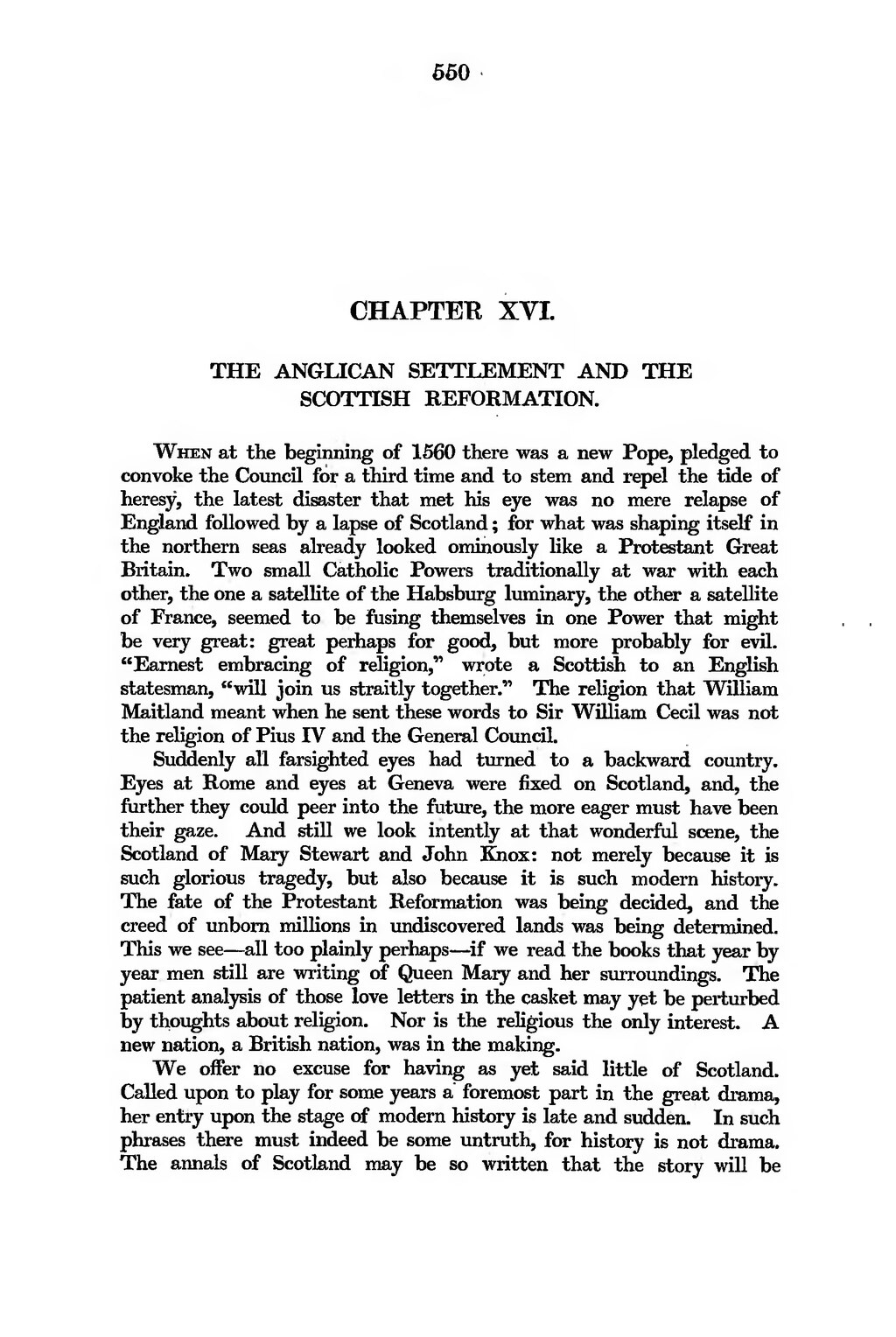CHAPTER XVI.
THE ANGLICAN SETTLEMENT AND THE SCOTTISH REFORMATION.
When at the beginning of 1560 there was a new Pope, pledged to convoke the Council for a third time and to stem and repel the tide of heresy, the latest disaster that met his eye was no mere relapse of England followed by a lapse of Scotland; for what was shaping itself in the northern seas already looked ominously like a Protestant Great Britain. Two small Catholic Powers traditionally at war with each other, the one a satellite of the Habsburg luminary, the other a satellite of France, seemed to be fusing themselves in one Power that might be very great: great perhaps for good, but more probably for evil. "Earnest embracing of religion," wrote a Scottish to an English statesman, "will join us straitly together." The religion that William Maitland meant when he sent these words to Sir William Cecil was not the religion of Pius IV and the General Council.
Suddenly all farsighted eyes had turned to a backward country. Eyes at Rome and eyes at Geneva were fixed on Scotland, and, the further they could peer into the future, the more eager must have been their gaze. And still we look intently at that wonderful scene, the Scotland of Mary Stewart and John Knox: not merely because it is such glorious tragedy, but also because it is such modern history. The fate of the Protestant Reformation was being decided, and the creed of unborn millions in undiscovered lands was being determined. This we see—all too plainly perhaps—if we read the books that year by year men still are writing of Queen Mary and her surroundings. The patient analysis of those love letters in the casket may yet be perturbed by thoughts about religion. Nor is the religious the only interest. A new nation, a British nation, was in the making.
We offer no excuse for having as yet said little of Scotland. Called upon to play for some years a foremost part in the great drama, her entry upon the stage of modern history is late and sudden. In such phrases there must indeed be some untruth, for history is not drama. The annals of Scotland may be so written that the story will be
